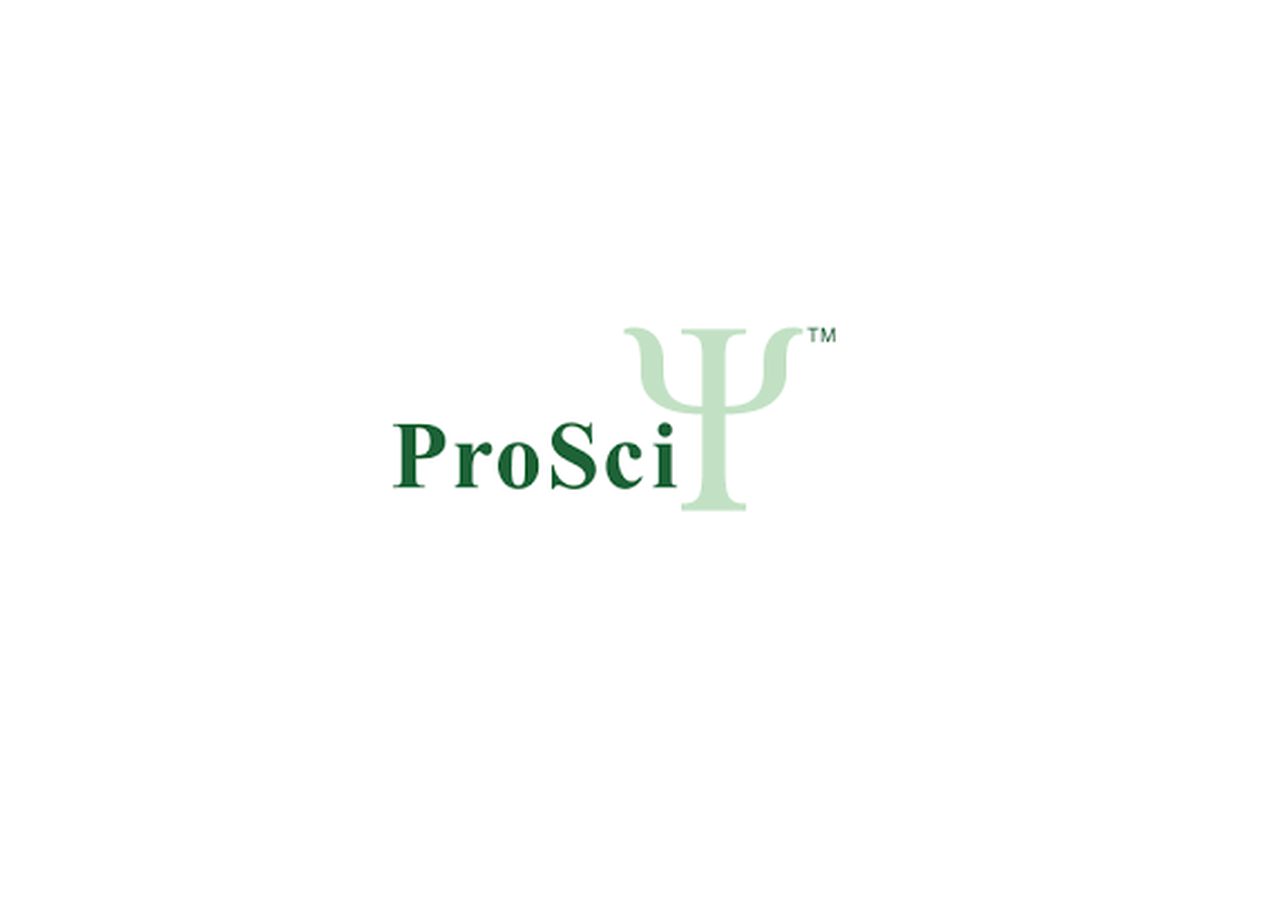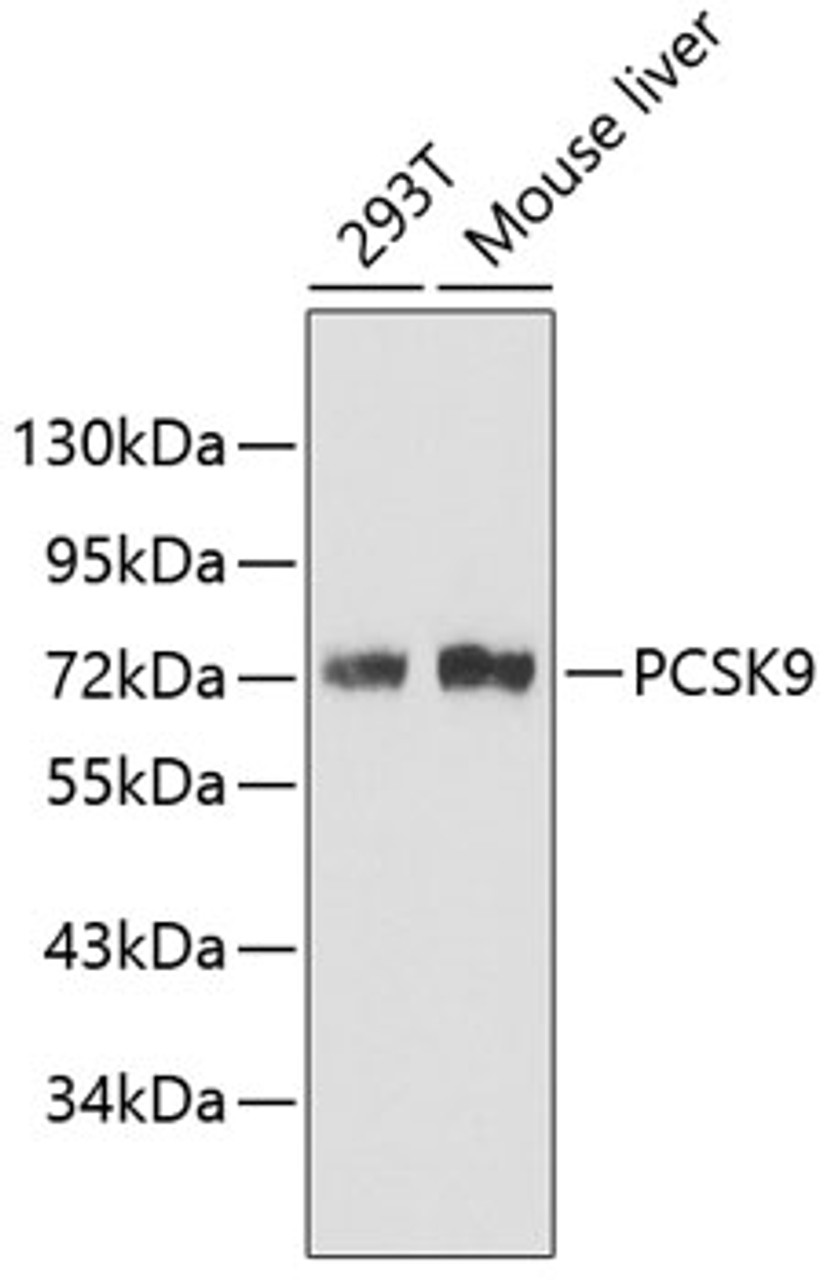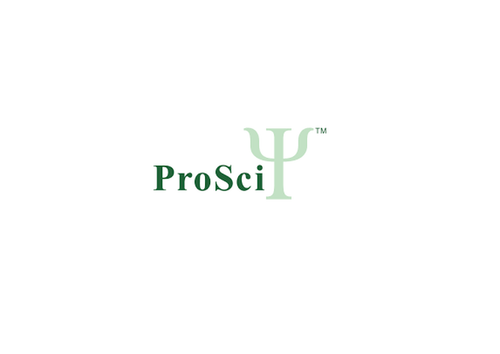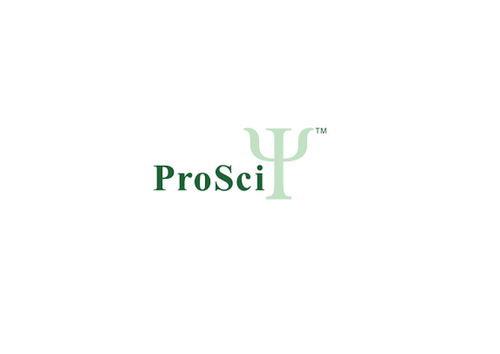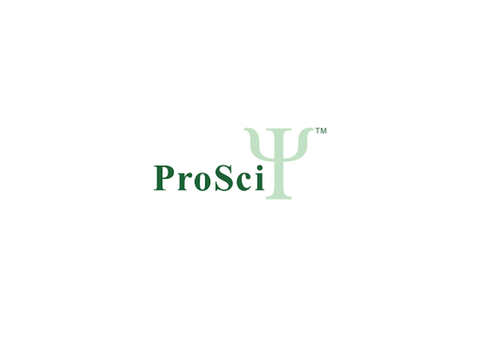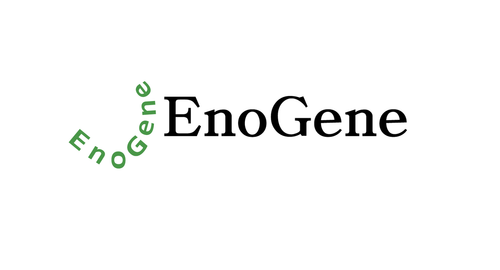Product Description
PCSK9 Antibody | 19-973 | ProSci
Host: Rabbit
Reactivity: Human, Mouse
Homology: N/A
Immunogen: A synthetic peptide of human PCSK9
Research Area: Apoptosis, Cancer, Cell Cycle, Neuroscience, Signal Transduction, Stem Cell
Tested Application: WB, IHC, Flow
Application: WB: 1:500 - 1:1000
IHC: 1:50 - 1:100
Flow: 1:20 - 1:50
Specificiy: N/A
Positive Control 1: 293T
Positive Control 2: Mouse liver
Positive Control 3: N/A
Positive Control 4: N/A
Positive Control 5: N/A
Positive Control 6: N/A
Molecular Weight: Observed: 74kDa
Validation: N/A
Isoform: N/A
Purification: Affinity purification
Clonality: Polyclonal
Clone: N/A
Isotype: IgG
Conjugate: Unconjugated
Physical State: Liquid
Buffer: PBS with 0.02% sodium azide, pH7.3.
Concentration: N/A
Storage Condition: Store at 4˚C. Avoid freeze / thaw cycles.
Alternate Name: neural apoptosis regulated convertase 1, hypercholesterolemia, autosomal dominant 3, NARC1, NARC-1, HCHOLA3, FH3, proprotein convertase subtilisin/kexin type 9, PCSK9, PSEC0052
User Note: Optimal dilutions for each application to be determined by the researcher.
BACKGROUND: This gene encodes a member of the subtilisin-like proprotein convertase family, which includes proteases that process protein and peptide precursors trafficking through regulated or constitutive branches of the secretory pathway. The encoded protein undergoes an autocatalytic processing event with its prosegment in the ER and is constitutively secreted as an inactive protease into the extracellular matrix and trans-Golgi network. It is expressed in liver, intestine and kidney tissues and escorts specific receptors for lysosomal degradation. It plays a role in cholesterol and fatty acid metabolism. Mutations in this gene have been associated with autosomal dominant familial hypercholesterolemia. Alternative splicing results in multiple transcript variants.
 Euro
Euro
 USD
USD
 British Pound
British Pound
 NULL
NULL

